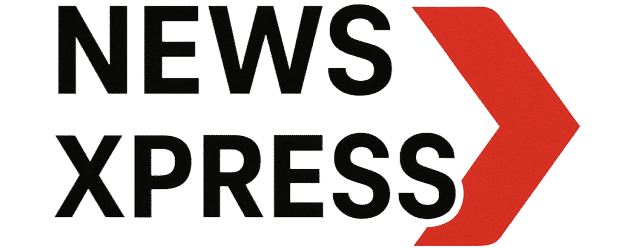The Meme-Driven Method: How ProgramGeeks Social Turns Coding Jokes into Career Gold
Scroll any tech forum, and you’ll see it: a hastily drawn comic poking fun at null pointer exceptions racks up more engagement than a 2,000-word tutorial. On ProgramGeeks Social, those spur-of-the-moment laughs fuel something bigger—a self-reinforcing ecosystem where humor, learning, and career advancement intertwine. By weaponizing meme culture, the platform has transformed from a niche hangout into an influential marketplace of ideas, portfolios, and professional connections. In the following paragraphs, we’ll trace how a community built on inside jokes has quietly become a pipeline for job offers, freelance gigs, and rapid upskilling, all while keeping the LOLs front and center.
Table of Contents
From Inside Jokes to Industry Insights: The ProgramGeeks Social Blueprint
Every programming tribe has its secret language—arcane references to semicolons, semaphores, and Stack Overflow antics. ProgramGeeks Social codifies that language into an always-on content stream. Posts that start as jokes about recursive function calls often end with detailed threads on tail-call optimization, and the transition feels seamless because members are already primed to care. The platform’s “Humor-to-Deep-Dive” architecture nudges creators to append mini-explainers to each meme. Over time, the punch lines evolve into micro-lessons, and followers keep scrolling not only for entertainment but for the incremental knowledge hits that accompany every laugh. This content architecture promotes retention rates that rival traditional e-learning portals, yet it never feels like homework.
The Algorithm of Virality: Engineering Meme Magic
Unlike mainstream networks that rely on opaque engagement formulas, ProgramGeeks Social exposes the gears. Creators see real-time dashboards measuring joke complexity, jargon density, and comment velocity. If a post about Kubernetes pods begins trending, the algorithm dynamically suggests related tags—container orchestration, DevOps fail stories, and career tips—helping authors chain content into binge-able series. Because the feedback loop is transparent, members quickly learn which formats resonate. An animated GIF comparing garbage collection in Java and Go may spike shareability in APAC time zones. At the same time, a satirical video about CSS woes lights up front-end circles in the Americas. By demystifying virality, the platform empowers coders to reverse-engineer engagement the same way they debug code: methodically and with empirical evidence.
Community-Driven Upskilling: Learning in Disguise
Traditional MOOCs ask learners to allocate blocks of uninterrupted attention—a scarce commodity in busy developer schedules. ProgramGeeks Social flips the model: it hides the vegetables in the candy. A meme ridiculing spaghetti code opens a “Thread Dive” where veterans refactor the snippet in multiple languages, inviting juniors to submit pull requests. Weekend hackathons sprout from viral joke prompts—“Make a framework that does nothing but still achieves 100% test coverage.” The result? Participants practice mocking, coverage tools, and CI/CD pipelines without the pressure of formal grading. Surveys conducted by independent hiring agencies show that 63 % of recruiters who source on ProgramGeeks Social rate candidates higher for a “practical problem-solving mindset” precisely because those candidates have battle-testing skills in public, meme-driven sandboxes.
Personal Branding the Geeky Way: Turning Likes into Leverage
LinkedIn endorsements can feel transactional; a simple thumbs-up on ProgramGeeks Social often carries deeper weight. When a thought-provoking joke about quantum computing lands on the front page, the author’s profile is automatically annotated with a “Trendsetter” badge that signals topical authority. Recruiters have learned to treat these badges as heuristics for soft skills—clarity, wit, and the ability to translate complexity into accessible narratives. Developers leverage this micro-reputation to negotiate conference speaking slots, land guest-blog opportunities, and broker equity packages at startups hungry for strong tech evangelists. Essentially, every meme acts as a miniature case study in communication skills—a trait that hiring managers prize but struggle to measure elsewhere.
Why Employers Lurk: A Recruiter’s Goldmine
From the employer’s perspective, ProgramGeeks Social functions like a continuous hackathon résumé. The same dashboard that feeds creators’ engagement metrics provides recruiters with filters for language expertise, contribution frequency, and community endorsements. An engineering lead can shortlist candidates who consistently post Rust-related content with high “Concept Clarity” scores, then review their comment history for real-world troubleshooting aptitude. The efficiency gain is dramatic; instead of sifting through static CVs, hiring teams witness live demonstrations of problem framing and peer mentoring—attributes far more predictive of on-the-job success. Several Fortune 500 companies now run official “Meme Challenges” on the platform, awarding interview fast-tracks to participants whose jokes demonstrate technical nuance and team-culture fit.

Monetization Streams: Side Hustles Born from Humor
A thriving creator economy has sprouted atop the laughs. ProgramGeeks Social offers “Stack-Tip Jars,” allowing fans to contribute a few dollars—or swap crypto tokens—for particularly enlightening memes. Top creators package their most viral posts into e-zines or animated courses, earning passive income while the original free memes keep attracting eyeballs. Some have spun off SaaS micro-products: a regex humor bot evolved into a full-fledged linting SaaS with 4,000 paying teams. Even swag—think T-shirts emblazoned with tongue-in-cheek error messages—generates meaningful revenue. The take-home message is clear: converting that attention into diversified income streams becomes frictionless when an audience trusts you to educate and entertain.
Moderation and Mindfulness: Keeping the Fun Professional
Comedy can cut both ways, and ProgramGeeks Social learned early that tech humor sometimes drifts into gatekeeping or burnout glorification. A hybrid moderation model pairs AI sentiment analysis with elected community stewards—the “Refactor Rangers.” Off-color jokes trigger auto-flags that route content into peer review rather than outright takedowns, promoting rehabilitation over punishment. Meanwhile, wellness prompts appear when users marathon-scroll past midnight, nudging them toward breaks or resource links on mental health. By treating professionalism and empathy as first-class citizens, the platform safeguards its reputation, ensuring that the meme stream remains an inclusive place where juniors feel safe laughing at their mistakes, and seniors feel respected for sharing war stories.
Looking Ahead: Meme-Based Pedagogy and the AI Co-Creator
Generative AI tools already let users draft meme templates from plain-language prompts, but ProgramGeeks Social envisions deeper integration. Imagine AI sidekicks that suggest punch lines grounded in a user’s code history, turning debugging sessions into a collaborative comedic routine. The roadmap also includes “Skill Trees,” where each viral meme unlocks a branching lesson plan, effectively gamifying professional development. As the boundaries between entertainment, community, and curriculum blur, the platform positions itself as a campus and a comedy club. In this place, the next generation of developers can learn, laugh, and launch careers without toggling between disparate websites.
Conclusion – When Humor Becomes Human Capital
ProgramGeeks Social proves that productivity and playfulness aren’t mutually exclusive in an industry obsessed with efficiency. By translating the esoteric quirks of software development into instantly shareable jokes, the platform keeps users emotionally invested long enough to absorb genuine expertise. Meanwhile, recruiters and creators tap into a live showcase of communication prowess, technical depth, and cultural intelligence. The upshot: memes, once dismissed as time-wasters, now serve as accelerants for networking, learning, and monetization. In the grand equation of career growth, ProgramGeeks Social adds a non-obvious variable—humor—and the output is pure gold.
Frequently Asked Questions
1. Is ProgramGeeks Social another meme page, or can it boost my coding career?
While the memes are the hook, the platform’s threaded deep dives, collaborative hackathons, and recruiter tools create a robust learning and job discovery pipeline. Many users report landing interviews or freelance contracts after their humorous posts displayed problem-solving skills in public.
2. Do I need to be a seasoned developer to participate?
Not at all. Beginners thrive by asking clarifying questions under viral posts, submitting small code snippets for community refactoring, and gradually building confidence. The humor lowers the intimidation barrier, making it an ideal entry point for newbies.
3. How can I monetize my content on ProgramGeeks Social?
Creators can enable Stack-Tip Jars, sell compilations of their best posts, launch mini-courses, or spin-off practical tools born from joke prototypes. The key is consistent value delivery—educational or comedic—that fosters trust with followers.
4. What safeguards exist against toxic behavior or plagiarism?
A dual moderation model blends AI filters with elected “Refactor Rangers” who review flagged content. The system emphasizes corrective feedback and attribution, preserving psychological safety and intellectual property.
5. Will AI eventually replace the human creativity behind programming memes?
AI can augment creativity by generating templates and suggesting punch lines, but the cultural context, timing, and personal storytelling that make a meme resonate remain distinctly human. The future is likely a co-creative landscape where AI handles routine tasks, and humans inject originality.







